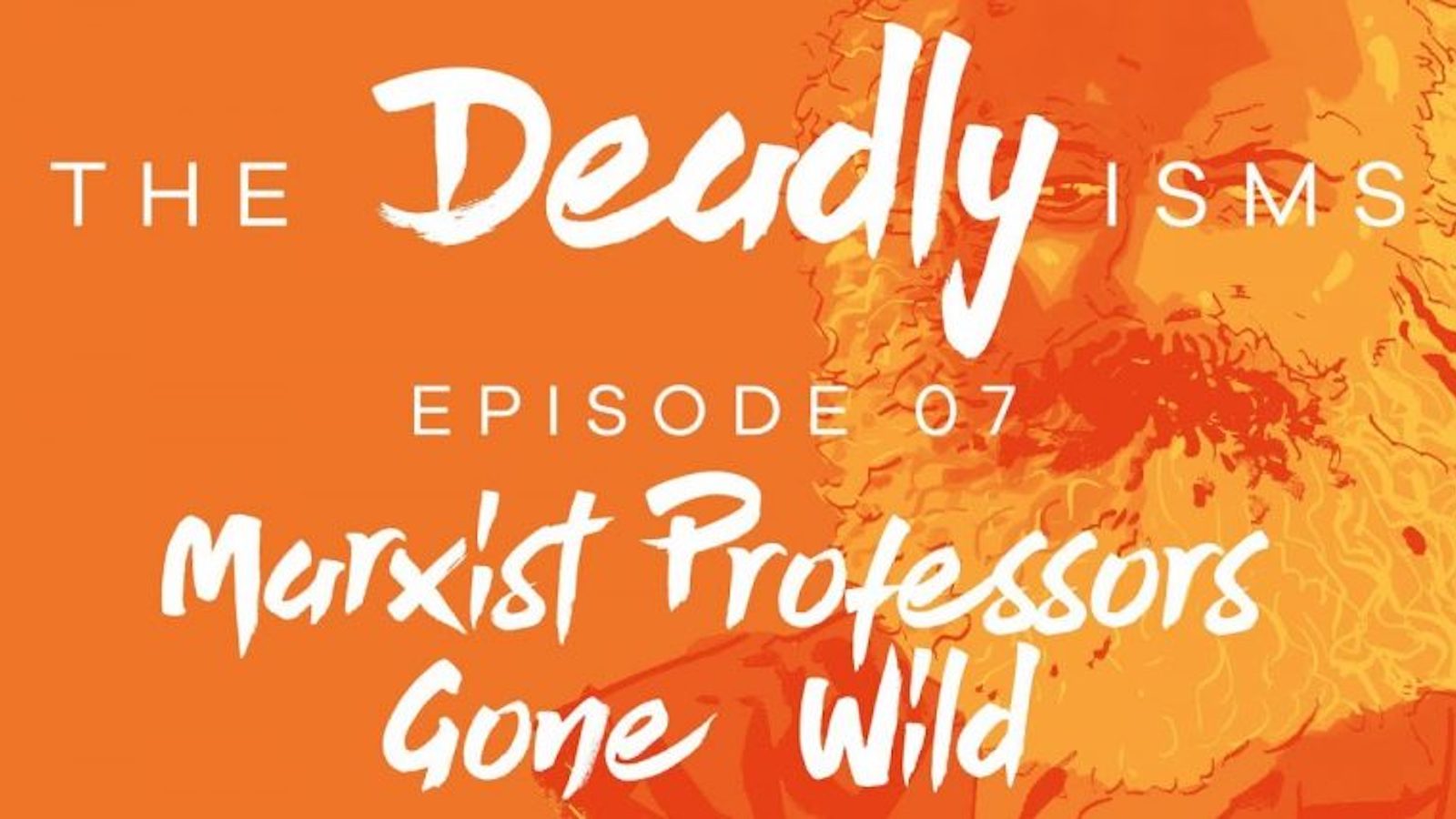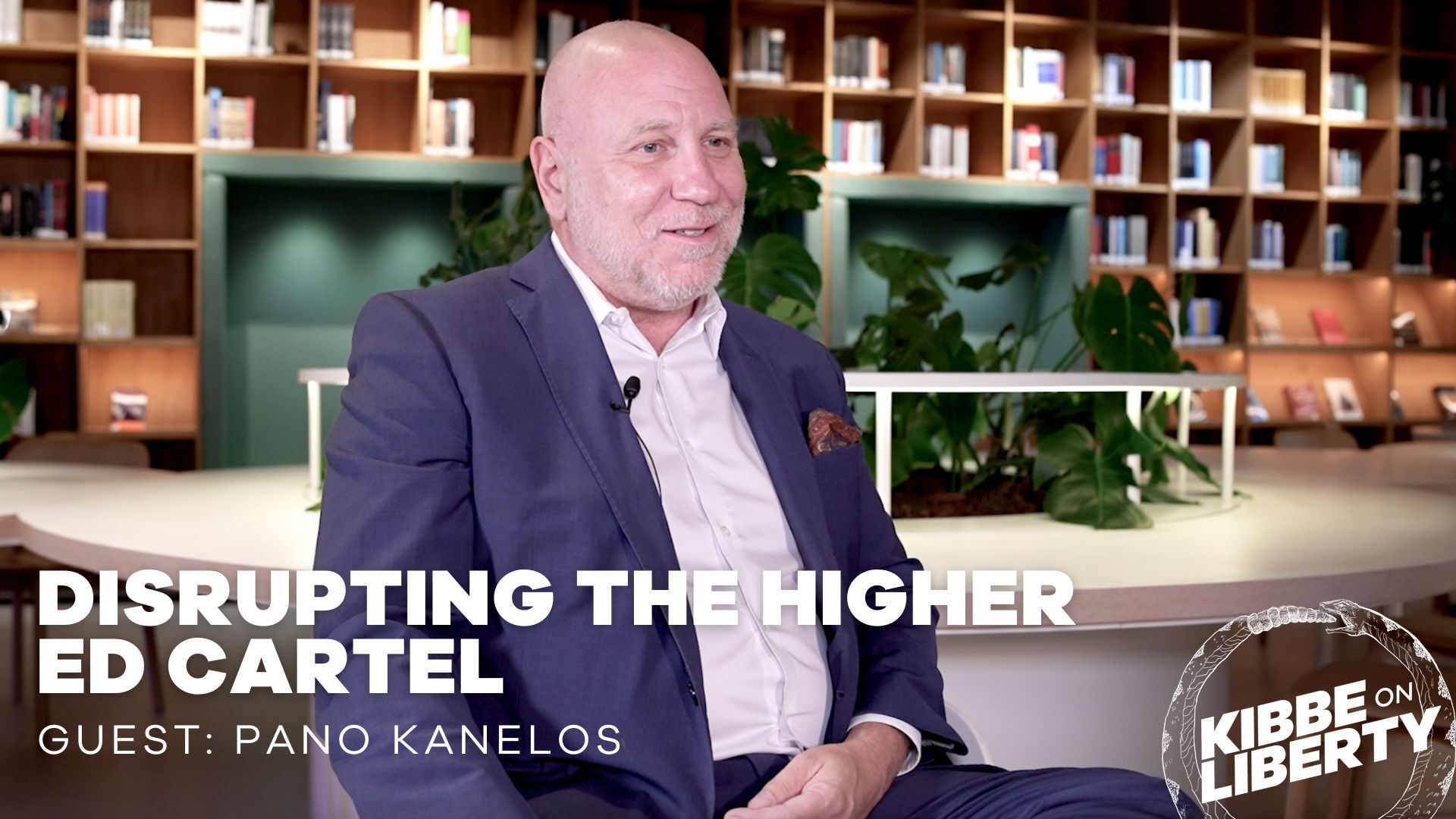
Those Nutty Professors
The university is a centuries old tradition, a place for scholarly exploration, a place to broaden the mind, a place where freedom of thought is not only allowed, but encouraged. At least, that’s the way it used to be. In Episode 7 of The Deadly Isms video series, we take a look at the bizarre behavior of professors at some of America’s top universities.
These days, it seems like America’s colleges are the refuge not of enlightened curiosity, but of dogmatic extremism. Free speech zones, trigger warnings, and microaggressions have recently been added to the lexicon to describe new ways that students must be protected from thoughts that might upset them. Rather than embracing inquiry and experimentation, conformity is demanded, as well as adherence to a Marxist orthodoxy that falls far outside the mainstream of American thought.
So what’s the deal? Where does this nonsense come from, and why do we allow it to be fed to our children? The explanation lies largely in the incentives facing college professors, and the psychology of those who choose academia as a profession.
Students have always been drawn to extreme or outrageous ideas, and there’s nothing wrong with that. As the mind develops, it is natural for it to explore strange and unorthodox theories not typically encountered in the mundane world. A necessary part of learning is to evaluate all these thoughts and ultimately judge between them. It is therefore the responsibility of professors to introduce students to various schools of thought so they can make informed decisions about their own philosophies.
Where things go wrong is when professors actively advocate for collectivism and punish students who disagree, despite the fact that collectivist ideas have resulted in the deaths of millions. So why do they do it?
The first reason is that college professors are, by definition, intelligent, and intelligent people tend to overvalue the power of their own minds. Too much faith in analytical thought leads to the idea that we can consciously design systems that work better than the ones we already have, systems that have emerged organically through thousands of years of societal trial and error. It’s a tempting thought, but it simply doesn’t work. Most institutions, like marriage, private property, and the rule of law, persist because they have been found to work. It is a quasi-evolutionary process that weeds out things that don’t work and retains those fit enough to survive. But professors think they know better, and are therefore attracted to systems like communism, that require extensive central planning by smart people.
The second factor influencing professors is a legitimate fear of the free market. Capitalism rewards those who provide the most desirable goods or services to the greatest number of people. The professor does have something to offer in the way of knowledge, but it is a product far less in-demand than other forms of entertainment, leisure, or technology. It seems unfair to the professor that his accumulated wisdom should not command a higher premium, and so he favors a system that rewards academics and intellectuals out of proportion to their contributions to society.
Finally, professors are at liberty to favor collectivism because they are shielded from the consequences of their ideas. While the political class has always drawn inspiration from intellectuals, it is the politician who enacts a policy who gets the blame when it goes wrong, not the academic who dreamt it up. The professor who advocates communism risks very little by doing so, even if his ideas are enthusiastically embraced by politicians.
Unfortunately, we tolerate these looney universities because employers demand a college degree even for entry level jobs, and government supports these institutions with tax dollars. Still, universities are not entirely immune from market pressures, and we have to start somewhere. Recognizing the problem and demanding change is the first step towards a saner system of higher education.
Free the People publishes opinion-based articles from contributing writers. The opinions and ideas expressed do not always reflect the opinions and ideas that Free the People endorses. We believe in free speech, and in providing a platform for open dialogue. Feel free to leave a comment.



